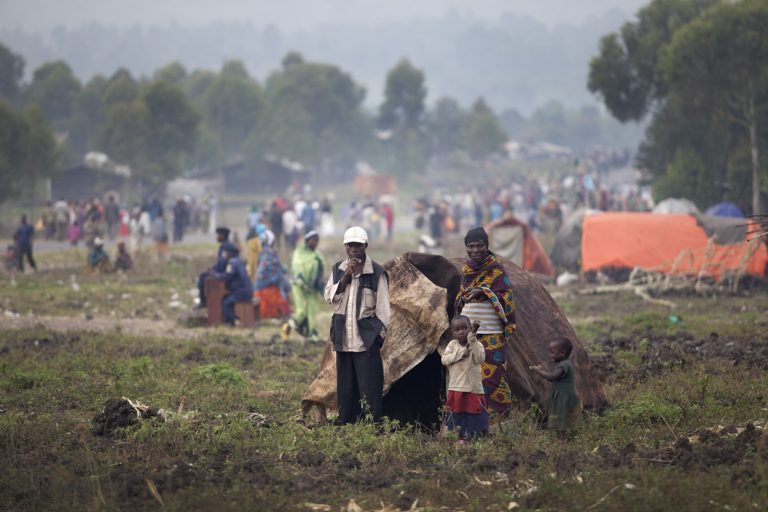DRC: ‘Our country is not for sale’

Congolese bishops have painted a harrowing picture of the severe challenges facing the population because of internal armed conflict and international exploitation.
In a statement, a copy of which was sent to Catholic charity Aid to the Church in Need (ACN), the six bishops of Bukavu ecclesiastical province in the Democratic Republic of the Congo (DRC) asked the nation’s leaders to serve their people and “stop running the country as if it was your private domain”.
The bishops criticised the Congolese government for abandoning the population and the international community for “plundering” the country.
About 120 militias have been fighting over territory and natural resources in the DRC’s eastern regions since 1996, killing six million people and causing more than another six million to be displaced, according to the UN.
North Kivu and Ituri provinces have been under martial law for three years, granting the Congolese army extra powers to administer the territories while fighting armed groups such as the Allied Democratic Forces (ADF) – affiliated with Daesh (ISIS) – and the March 23 Movement (M23).
In their statement, dated 14th April, the bishops of Bukavu, Butembo-Beni, Goma, Kasongo, Kindu and Uvira denounced the “insecurity that has become endemic with its trail of murders carried out in broad daylight, massacres and kidnappings of peaceful Congolese citizens in our towns and villages”.
They went on to condemn “the encirclement of the city of Goma by the M23 supported by Rwanda”, “the paralysis of the economy through a strategy of isolation and asphyxiation of large and small urban communities” and the “parallel administrations in areas under the control of armed groups”.
They added that conflicts over land are often exacerbated by a “breach of trust between the civil population and the military” and by “unjust court decisions, including those concerning churches and schools”.
The bishops explained that some parishes have had to close down due to the insecurity and said the people have been abandoned by their leaders.
They wrote: “When we hear our people speaking of the source of our interminable suffering, we conclude that all of this is happening because the Congolese state is dead – that we, the governed, have been left to our sad fate, and that there is no indication that the current leaders have any concern for the welfare of those they govern.”
The statement also called on the international community to “understand once and for all that the DR Congo is neither for sale nor to be lawlessly exploited” – referencing Pope Francis’s message in early 2023 telling multinational companies to take their “hands off” the DRC and Africa.
The bishops highlighted the heroism of priests and religious who carry out their mission in territories controlled by militias – adding that most of the population sees the Catholic Church “as an institution that tirelessly defends the people’s interests”.
They stressed that the Church continues to carry out its mission of charity and aid “among the displaced, which in the Dioceses of Butembo-Beni and Goma alone exceed two million”.
They concluded: “May we be able to rebuild our beautiful country through the intercession of the Virgin Mary, mother of the resurrected one, and queen of peace.”
Father Henri Chiza Balumisa, Vicar-General of Goma, east DRC, told ACN: “We are grateful to our brother priests who live in difficult situations, risking their lives, and afflicted by fear…
“They are here to share in the suffering of the people. It is in these moments of suffering that the Church wants to be the salt of the earth.”
Father Balumisa said that the Christians in his diocese feel abandoned by the rest of the world but not by ACN benefactors.
He added: “I would like to take this opportunity to thank ACN, which stands out for its support, for its presence and effort in supporting our pastoral work through Mass stipends to improve the quality of life of the priests, and which accompanies the priests of our diocese in their apostolate.”
With thanks to Sina Hartert
